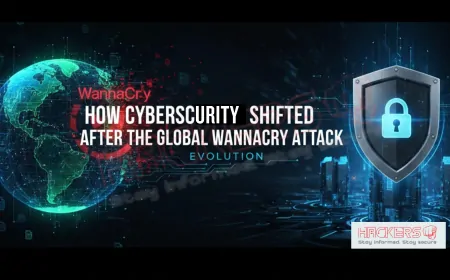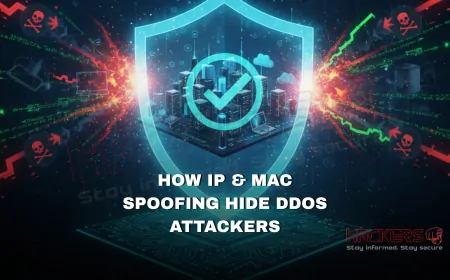How New NEP 2020 Rules Are Impacting Cyber Security Programs in Pune Colleges
Imagine a world where your personal data is safe from hackers, businesses run without fear of cyber attacks, and governments protect their secrets with ironclad digital walls. This is not just a dream; it is the promise of strong cyber security. In India, as technology grows faster than ever, the need for experts in this field has exploded. Pune, often called the Oxford of the East, stands at the heart of this revolution with its top-notch colleges training the next generation of cyber defenders. But here is the big change: the National Education Policy, or NEP 2020, has shaken things up. Launched in 2020, this policy aims to make education more flexible, practical, and ready for the real world. For cyber security programs in Pune colleges, it means new ways of learning, more hands-on skills, and better job prospects. If you are a student, parent, or just curious about tech education, this blog will walk you through how these rules are reshaping programs. We will keep it simple, explain terms as we go, and show real examples from Pune's campuses. Let us dive in and see how NEP 2020 is building a safer digital future, one class at a time.

Table of Contents
- Overview of NEP 2020
- Why Cyber Security Matters in Today's World
- How NEP 2020 is Changing Cyber Security Education
- Current Cyber Security Programs in Pune Colleges
- Specific Impacts of NEP on Pune's Programs
- Challenges and Opportunities
- The Road Ahead
- Conclusion
- Frequently Asked Questions
Overview of NEP 2020
The National Education Policy 2020 is like a fresh blueprint for India's schools and colleges. It replaces older policies from the 1980s and focuses on making learning fun, useful, and open to everyone. Think of it as giving students more choices, like picking your own adventure in a book, instead of following a strict path.
Key ideas include a four-year undergraduate degree with options to exit early if needed. This means after one year, you get a certificate; after two, a diploma; after three, a basic degree; and after four, an honors degree with research. NEP also pushes for multidisciplinary studies, so a cyber security student might take classes in ethics or business too. It stresses skills over rote learning, which is memorizing facts without understanding them.
- Flexible curriculum: Mix subjects from different fields.
- More focus on research and innovation.
- Integration of technology in teaching.
- Vocational training from early stages.
In higher education, NEP sets up a single regulator, the Higher Education Commission of India, to make rules fair for all colleges. For Maharashtra, where Pune sits, the state has formed committees to roll this out. Universities like Savitribai Phule Pune University (SPPU) are leading the way, updating syllabi to match NEP goals. By October 2025, many programs have fully adopted these changes, with new intakes reflecting the policy's emphasis on practical training.
This policy is not just words on paper. By 2025, many changes are in full swing, affecting how colleges design courses. For cyber security, it means programs that prepare students for real threats like data breaches or ransomware, which is software that locks your files until you pay up.
Why Cyber Security Matters in Today's World
Cyber security is the shield that protects computers, networks, and data from bad actors. In simple terms, it stops hackers from stealing your bank details or crashing a hospital's system. With India facing over 1.3 million cyber attacks daily, as per recent reports, the demand for skilled pros is sky-high.
Pune, with its booming IT sector, feels this pinch. Companies like Infosys and TCS need experts who can spot vulnerabilities, which are weak spots in software. Without strong cyber defenses, businesses lose money, trust, and sometimes their entire operations. In 2025, with rising AI-driven threats, the need has only grown.
- Rising threats: Phishing emails trick you into giving info; malware hides in downloads.
- Job boom: Cyber experts earn up to INR 5-10 lakhs starting salary.
- National need: Government pushes for secure digital India.
Education plays a key role here. Before NEP, many programs were theory-heavy. Now, with practical focus, students learn to use tools like firewalls, which block unwanted traffic, or encryption, scrambling data so only the right people read it.
How NEP 2020 is Changing Cyber Security Education
NEP 2020 brings fresh air to cyber security courses. It encourages multidisciplinary approaches, so you might study cyber law alongside coding. This helps understand not just tech, but rules around data privacy.
The four-year structure adds depth. In the first year, basics like networking. By year four, advanced topics like ethical hacking, testing systems without harm. Multiple exits let students join jobs early or pursue masters. As of 2025, SPPU has mandated these structures across affiliated colleges.
- Skill-based learning: More labs, less lectures.
- Industry ties: Internships mandatory.
- Research push: Projects on local threats.
NEP also boosts e-learning. Platforms like SWAYAM offer free cyber courses, making education accessible even in remote Pune areas.
Current Cyber Security Programs in Pune Colleges
Pune's colleges are hotbeds for cyber security. Under SPPU, many offer B.Sc. in Cyber Security, a three or four-year program per NEP. Fees range from INR 1-2 lakhs total, with good placements. Other universities like Symbiosis and DY Patil provide specialized options.
Here is a table of top programs:
| College Name | Program | Duration | Key Features | Avg. Fees (INR) |
|---|---|---|---|---|
| Nowrosjee Wadia College | B.Sc. Cyber Security and Digital Forensics | 4 years | NEP compliant, labs in forensics | 80,000 |
| MIT ACSC | B.Sc. Cyber Security & Digital Science | 3/4 years | Industry projects, ethical hacking | 1,50,000 |
| DY Patil International University | M.Tech Cyber Security | 2 years | Postgrad focus, research | 2,00,000 |
| Symbiosis International University | B.Tech Cyber Security | 4 years | Global ties, certifications | 3,00,000 |
| ASM CSIT | B.Sc. Cyber Security | 3/4 years | Practical training, placements | 1,20,000 |
These programs blend theory with practice. For example, at Nowrosjee Wadia, students handle real digital evidence cases. MIT ACSC emphasizes digital science integration, preparing for emerging tech.
Specific Impacts of NEP on Pune's Programs
NEP has directly influenced Pune colleges. First, curriculum updates: SPPU mandated NEP-aligned syllabi by 2024, with full implementation by 2025. Cyber programs now include 20% vocational credits, like coding bootcamps.
Second, flexibility: Students can minor in AI or law, making cyber grads versatile. Third, assessments change from exams to projects, reducing stress.
- More internships: Ties with Pune IT firms.
- Digital tools: VR for attack simulations.
- Inclusivity: Scholarships for girls in tech.
Take MIT ACSC: Their B.Sc. now has a research year, boosting innovation. Enrollment rose 30% post-NEP, per college reports. Symbiosis adds global certifications, aligning with NEP's international outlook.
Challenges include teacher training. Many faculty need upskilling in new tools. But opportunities abound, with NEP funding for labs.
Challenges and Opportunities
Implementing NEP is not smooth. In Pune, small colleges struggle with infrastructure for four-year setups. Funding gaps hit rural affiliates.
Yet, opportunities shine. Industry partnerships mean jobs: 80% placement rates in cyber programs. NEP's research focus could spawn startups in Pune's ecosystem. In 2025, new labs funded by UGC are opening doors.
- Challenge: Faculty shortages.
- Opportunity: Global collaborations.
- Challenge: Rural access.
- Opportunity: Online modules.
Government aids via grants, but colleges must adapt fast.
The Road Ahead
By 2030, NEP aims for 50% higher education enrollment. For cyber security in Pune, this means more specialized centers. Expect AI-integrated courses, tackling threats like deepfakes.
Students will graduate ready for roles in ethical hacking or compliance. Pune could lead India's cyber talent pool, supporting Digital India. With 2025 admissions open, the momentum is building.
Conclusion
NEP 2020 is transforming cyber security programs in Pune colleges from rigid paths to dynamic journeys. With flexible structures, practical skills, and industry links, students are better equipped for a digital world full of risks and rewards. While hurdles like training exist, the gains in jobs and innovation outweigh them. As Pune's colleges embrace these changes, they not only secure data but also futures. If you are eyeing a cyber career, now is the time: explore these programs and step into a secure tomorrow.
Frequently Asked Questions
What is NEP 2020?
NEP 2020 is India's new education policy that makes learning more flexible and skill-focused, replacing old rules to prepare students for modern jobs.
How does NEP affect undergraduate degrees?
It introduces a four-year structure with exit options after one, two, or three years, allowing certificates or diplomas along the way.
Why choose cyber security in Pune?
Pune has top colleges, low fees, and strong IT industry ties, offering great placements in a growing field.
What are common cyber security courses under NEP?
B.Sc. or B.Tech in Cyber Security, now with multidisciplinary options like ethics or data science.
Are internships part of these programs?
Yes, NEP mandates them, often with Pune firms for real-world experience.
How much do these courses cost?
Around INR 1-3 lakhs total, varying by college, with scholarships available.
What jobs can I get after graduating?
Roles like security analyst, ethical hacker, or consultant, starting at INR 5 lakhs per year.
Is prior coding knowledge needed?
No, basics are taught, but math helps for entry.
How has curriculum changed?
More projects, less exams; focus on skills like encryption and threat detection.
Which college is best for beginners?
Nowrosjee Wadia or ASM CSIT, with supportive faculty and simple starts.
Does NEP include online learning?
Yes, platforms like SWAYAM integrate for flexible study.
What about placements?
Over 80% rate, with companies like TCS visiting campuses.
Are there scholarships?
Yes, government and college ones for merit or need.
How long to complete a degree?
Three or four years, with early exits possible.
What is digital forensics?
Investigating cyber crimes by recovering data from devices.
Is ethical hacking taught?
Yes, to learn attacking systems legally for defense.
How does NEP promote research?
Fourth-year honors include projects, funded by grants.
Challenges for students?
Adapting to new methods, but support is growing.
Future trends in cyber security?
AI defenses, quantum threats; NEP prepares for them.
Can girls join easily?
Absolutely, with special drives for women in tech.
Where to apply?
College websites or SPPU portal, admissions in June.
What's Your Reaction?










































































